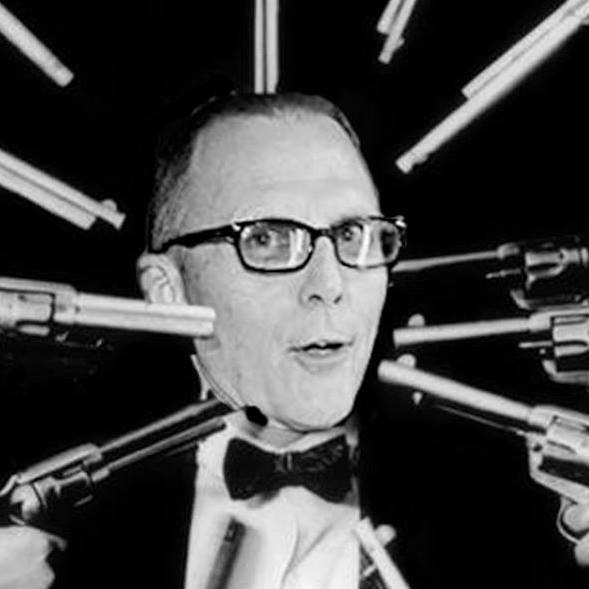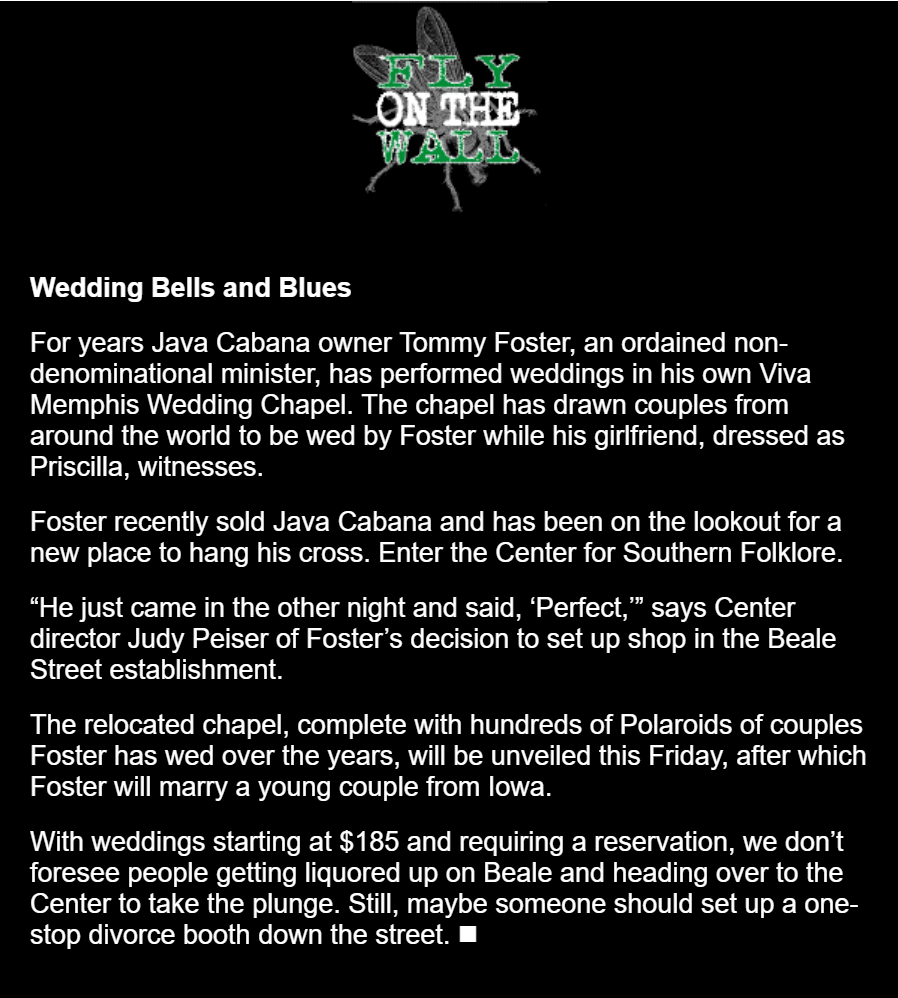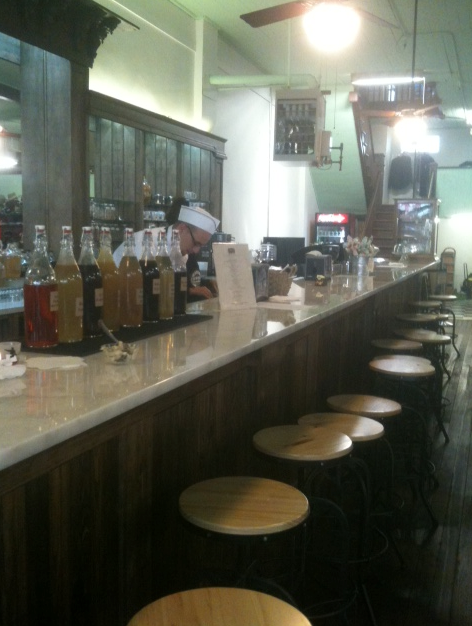
Self portrait.
Tommy Foster was the epitome of Memphis cool. Every day of his too-short life, this artist and enabler of alternative culture in Memphis made the city where he grew up a more colorful place to live in and explore. In addition to building his own outsider-styled constructions, contraptions, and curios, the self-taught sculptor and painter founded spaces for other artists to display and sell their work. He operated a storied venue that hosted some of the best bands of the day while doubling as an incubator for a host of local players. He made safe, visually inspired and inspiring spaces where writers, poets, and would-be filmmakers felt comfortable working and sharing their words in a noncompetitive environment.
In later years, Foster took pictures at parties. It was a gig, but also an extension of his art. As usual, this fanboy and trendsetter was showing Memphis its best, fanciest, and funnest self.
Foster, who sometimes signed his artwork “Colonel Tommy,” lost a long, hard-fought battle with cancer this week. Even if you never met the man, if you’ve lived in Memphis in the past 40 years, you’ve encountered some aspect of his marvelous, multivarious legacy.

The first mention of Foster I could locate in The Memphis Flyer‘s digital archives is dated April 2, 1998 (and now reprinted here on the right, where you can click to expand it). It certainly wasn’t his first appearance in our pages, nor would it be his last. But it’s an appropriately colorful yarn and, in describing this life well-lived, it seems as good a place to start as any. On that date, the original Fly on the Wall column reported that the Java Cabana founder, who sometimes moonlighted as non-denominational minister, had sold his funky Cooper-Young coffee shop and would no longer perform Elvis-themed weddings in its Viva Memphis Wedding Chapel. He was packing up his decorated box of sideburns, wigs, and chunky gold sunglasses and taking his kingly matrimony business to the Center for Southern Folklore, which was then located on Beale Street.
Wedding packages were affordably priced starting at only $185.
Memphis is a city of marvels and curiosities and Tommy Foster did his part to keep it weird and real. In the 1980s, he founded the Pyramid Club, an upstairs rock-and-roll bar on a stretch of Madison Ave. where all the buildings were leveled to make room for AutoZone Park and surrounding apartment buildings. Musicians who played there may remember the seemingly endless, narrow stairway as the “worst load-in in history” but it attracted players like Alex Chilton and personalities like musician/journalist Bob Palmer and it hosted performances by bands like Flat Duo Jets, Human Radio, The Grifters, and The Scam.
Foster almost singlehandedly launched coffee culture in Memphis and laid a cornerstone for Memphis’ funky coffeehouse scene. He opened Java Cabana in the Cooper-Young neighborhood in 1992, at the dawn of the C/Y comeback.
Foster turned Java’s back room into his Viva Wedding Chapel, so Elvis-loving couples wouldn’t have to go to Vegas to get married by the King. It could happen in the birthplace of rock-and-roll in a funky little room where the walls were hung with folk art depictions of rock-and-soul saints. Foster’s wonderful coin operated Elvis impersonator shrine— originally a window display for Java Cabana— was replicated and placed in House of Blues venues across the country.

Foster ran the quirky Viva Memphis photo booth, oversaw the creation of A. Schwab’s fantastic soda fountain, and did so many other things I’m sure I’m leaving out. He’ll be missed, but his spirit will be with us for some time to come.
A memorial service is planned for later this summer. Details to come.
Goodbye Colonel Tommy